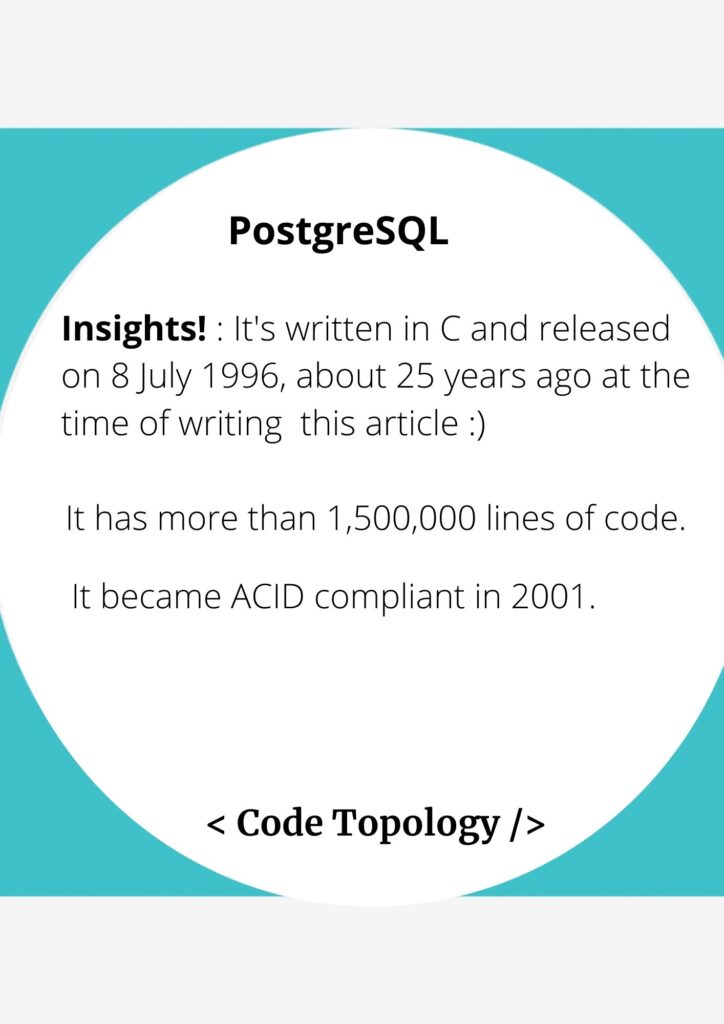
PostgreSQL is powerful, open-source, object-relational database system. It is one of the most widely used database systems standing at the 4th position in terms of demand as per statista report. It extends SQL language and adds features to efficiently handle complex data operations and storage.
As it is open-source, it’s not controlled by any company or entity and its source code is available on git. It has more than 52000 commits which adds more stability and features since its inception!
From this number of commits, you can guess how actively the PostgreSQL community contributes to its growth.
PostgreSQL Feautres
Postgres supports nearly all major platforms like Linux, Unix, Windows, Mac, etc. Following are some features which make it a robust and enterprise-class database system.
- It provides programming interfaces for the most popular languages like Java, Python, C#, C/C++, etc.
- It supports User-defined custom datatypes.
- From the data integrity standpoint, it supports an explicit locking mechanism along with advisory locks.
- To improve performance, it supports advanced Indexing like GiST, SP-Gist, KNN Gist, GIN, BRIN, Covering indexes, Bloom filters
- It has Multi-Version Concurrency Control (MVCC).
- From a security point of view, it supports column and row-level security.
- Multi-factor authentication with certificates and an additional method.
- Support for international character sets, e.g. through ICU collations.
- It has Case-insensitive and accent-insensitive collations which are useful in the case of internationalization.
Its Advantages!
- It’s an Open Source DBMS System.
- Reduces Cost of Ownership as there is no license fees!
- It offers great scalability.
- Provides flexible full-text search.
- It supports different kinds of techniques for geographic data storage.
Difference Between PostgreSQL and SQL
PostgreSQL has certain extra functionalities that are not there in SQL which are as follows:
- Support many advanced types such as an array, hstore, and user-defined type.
- PostgreSQL has IP Address Data type.
- Supports partial and bitmap indexes.
- Wide range of options to set up triggers.
- It Supports extensions and custom modules.
- It supports Unicode characters.
- Supports JSON by default.
- Works on almost every OS.
Disadvantages
Although its a robust and enterprise-class DBMS, it has few disadvantages
- Making replication is more complex.
- PostgreSQL installation is fairly difficult for beginners.
- Has lack of skilled professionals.
- Its performance is slower as compared to MySQL.
- Many open-source tools support MySQL but not PostgreSQL.
Use Cases
Geometric Data storage-related applications: It has a powerful extension called “PostGIS” which provides hundreds of functions to process geometric data in various formats.
Manufacturing Industries: It can be configured for automatic failover, full redundancy, and almost zero downtime upgrades so it’s ideal for industries that expect 0 or no downtime.
Scientific Applications: Scientific apps generate huge data. PostgreSQL provides excellent analytics capabilities. You can write your own aggregation functions.